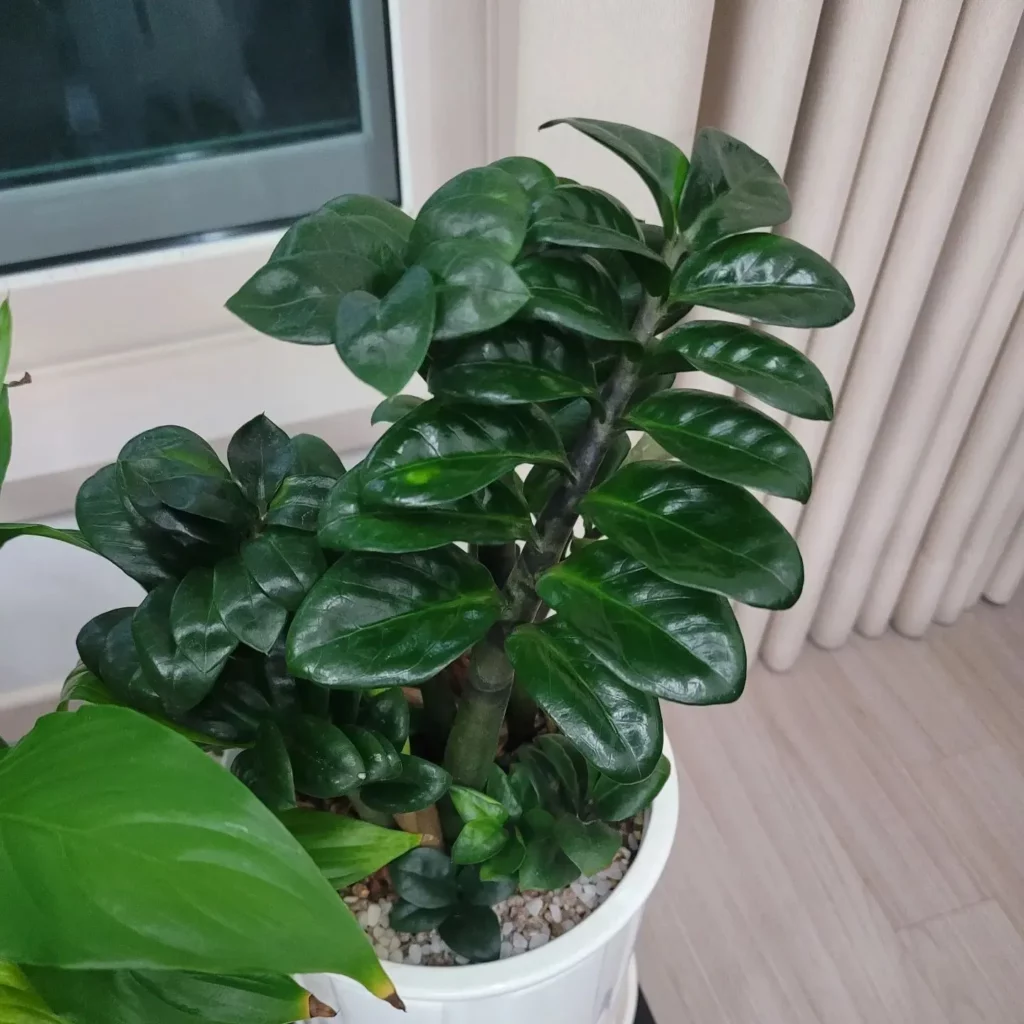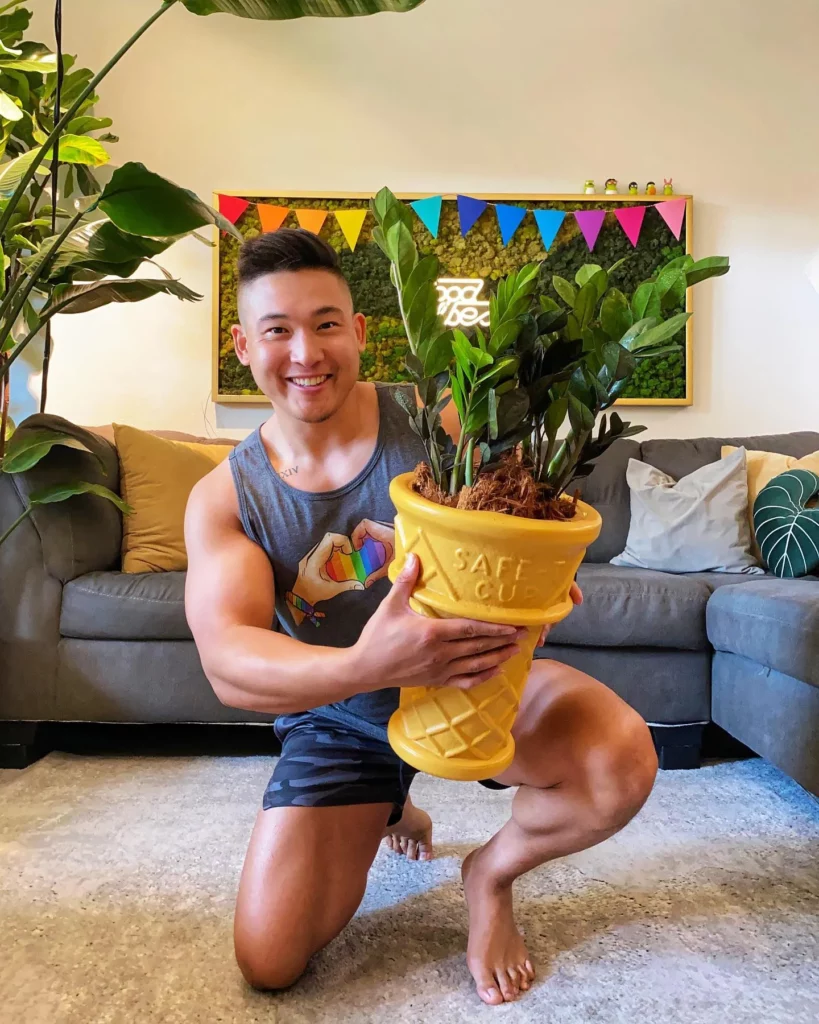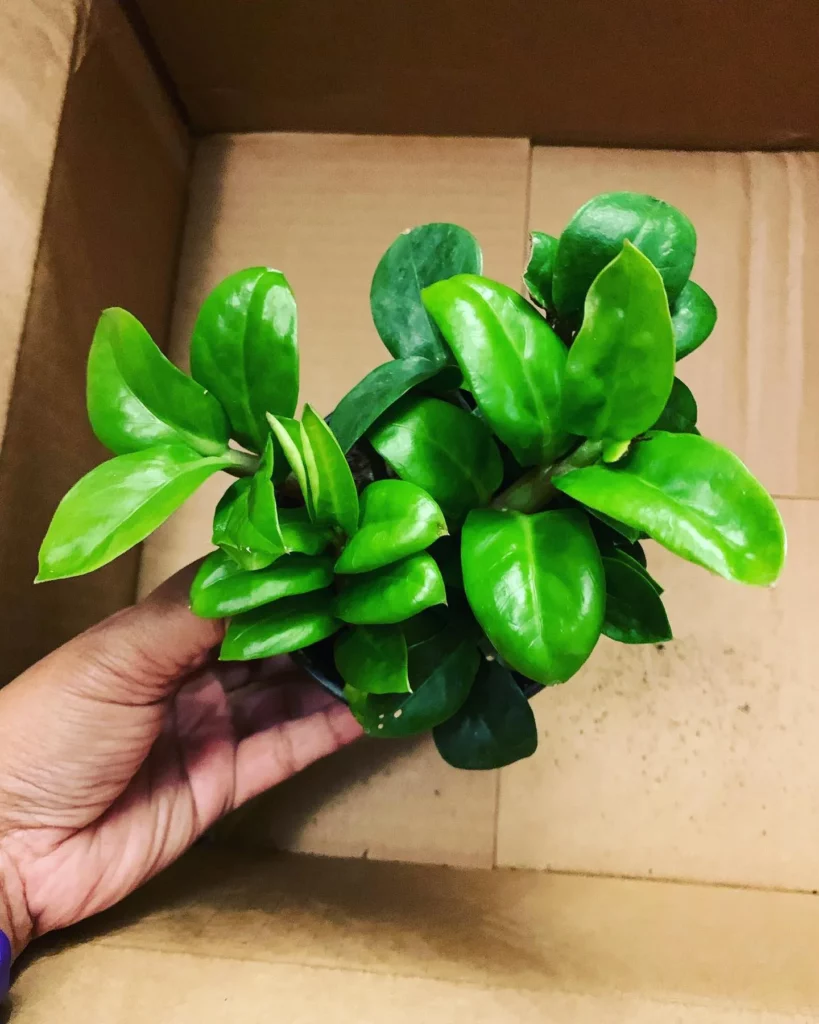ZZ plants thrive best in well-draining, slightly acidic to neutral soil, such as a mix of potting soil, perlite, and coarse sand.
ZZ plants, also known as Zamioculcas zamiifolia, thrive in optimal soil conditions, necessitating a well-draining mix with nutrients and good aeration.
Ideal pH ranges from 6.0 to 7.0, ensuring healthy growth. Utilizing pre-made potting mixes enriched with perlite or horticultural sand promotes proper drainage and nutrient uptake, preventing issues like root rot.
No products found.
Soil Type and Composition for ZZ Plants

ZZ plants prefer a well-draining potting mix that provides good moisture control. It is crucial to use a soil type that allows excess water to quickly drain away to prevent root rot, which can be detrimental to the plant’s health.
To achieve the ideal soil composition, a combination of all-purpose potting soil mix, horticultural sand, or perlite is recommended. These additives improve drainage and help create a light and fluffy texture that promotes root development and prevents waterlogged conditions.
No products found.
The soil should also be rich in essential nutrients to support the growth and vitality of ZZ plants. Nitrogen, phosphorus, potassium, and micronutrients are essential for their overall health.
These nutrients can be provided by using a quality potting mix that has been formulated to meet the needs of indoor plants. Additionally, organic fertilizers or slow-release fertilizers can be used to supplement the soil’s nutrient content.
Along with good drainage and nutrient-rich soil, ZZ plants thrive in well-aerated environments. Aeration allows oxygen to reach the plant’s roots, promoting healthy growth and preventing suffocation due to compacted soil.
Maintaining a pH level between 6.0 and 7.0 is crucial for ZZ plants, as it ensures optimal nutrient uptake and prevents nutrient deficiencies. pH levels outside this range may hinder nutrient absorption and lead to stunted growth.
Nutrient Requirements for ZZ Plants

ZZ plants require a soil that is rich in essential nutrients to support their growth and development. An all-purpose potting soil mix combined with horticultural sand or perlite provides the necessary nutrients and promotes good drainage. This ensures that ZZ plants receive the proper balance of nitrogen, phosphorus, potassium, and micronutrients for their overall health.
When selecting a potting soil mix for ZZ plants, it is important to consider their specific requirements. Look for pre-made potting soil mixes that are formulated for houseplants or succulents, as they often contain the right blend of nutrients.
Some recommended potting soil mixes for ZZ plants include Black Gold’s Natural and Organic Potting Soil, FoxFarm Ocean Forest Potting Soil, Espoma Organic Cactus Mix, and FoxFarm Happy Frog Potting Soil.
Good aeration and pH levels are also crucial for ZZ plants. Adequate aeration ensures that the roots receive enough oxygen, preventing issues like root rot.
Additionally, the pH level of the soil should be between 6.0 and 7.0, which is slightly acidic to neutral. This pH range allows for optimal nutrient uptake by the plant and supports healthy growth.
Aeration and pH Levels for ZZ Plants

Adequate aeration and maintaining the right pH levels in the soil are crucial for ZZ plants to thrive. These factors play a significant role in the overall health and well-being of these popular houseplants. ZZ plants prefer a well-draining potting mix that is light and fluffy, allowing oxygen to reach their roots, which promotes healthy growth.
When it comes to pH levels, ZZ plants thrive in slightly acidic to neutral soil conditions. A pH range between 6.0 and 7.0 provides optimal conditions for nutrient absorption and root development.
No products found.
It’s essential to monitor the pH levels regularly and adjust if necessary to ensure the ZZ plants are growing in an environment that meets their requirements.
To improve aeration and promote proper drainage, you can enhance the potting mix with materials like horticultural sand or perlite. These additions help create air pockets in the soil, allowing excess water to drain away and preventing the risk of root rot.
Recommended Potting Soil Mix for ZZ Plants

Several pre-made potting soil mixes are available in the market that cater to the soil preferences of ZZ plants. These mixes provide the ideal combination of nutrients, good drainage, and proper aeration necessary for healthy ZZ plant growth.
One popular choice is Black Gold’s Natural and Organic Potting Soil, which is known for its high-quality ingredients and ability to retain moisture while allowing excess water to drain away. This mix contains a blend of sphagnum peat moss, perlite, and earthworm castings, providing a well-balanced and nutrient-rich environment for ZZ plants.
If you prefer an organic option, FoxFarm Ocean Forest Potting Soil is an excellent choice. This mix is made from a combination of aged forest products, sphagnum peat moss, earthworm castings, bat guano, and crab meal, ensuring a nutrient-dense soil for your ZZ plants. It also contains perlite for improved drainage and aeration.
Another recommended potting soil mix is Espoma Organic Cactus Mix. As the name suggests, it is specifically formulated for cacti and succulents, making it suitable for ZZ plants, which have similar soil preferences.
This mix is lightweight and well-draining, allowing excess moisture to escape and preventing waterlogged roots. It contains peat humus, sand, perlite, and earthworm castings to create an ideal growing medium for ZZ plants.
FoxFarm Happy Frog Potting Soil is yet another option worth considering. It is a nutrient-rich mix that consists of earthworm castings, bat guano, and aged forest products.
This blend promotes healthy root development and provides a balanced supply of essential nutrients for ZZ plants. The perlite in the mix ensures good drainage, preventing water from accumulating around the plant’s roots.
Conclusion

By understanding and meeting the soil preferences of ZZ plants, you can ensure their healthy growth and beautiful appearance in your home.
ZZ plants thrive in a well-draining potting mix that is light and fluffy. An all-purpose potting soil mix, combined with horticultural sand or perlite, provides the necessary nutrients and ensures good drainage.
It is essential to have a soil rich in nitrogen, phosphorus, potassium, and micronutrients, as these elements are vital for the plant’s overall health.
Adequate aeration and maintaining pH levels between 6.0 and 7.0 are also crucial for ZZ plants. These factors promote optimal root development and nutrient absorption, leading to healthier and more vibrant plants.
For convenience, there are pre-made potting soil mixes available in the market that are suitable for ZZ plants. Some popular options include Black Gold’s Natural and Organic Potting Soil, FoxFarm Ocean Forest Potting Soil, Espoma Organic Cactus Mix, and FoxFarm Happy Frog Potting Soil.
These mixes are specifically formulated to meet the soil preferences of ZZ plants, ensuring their specific needs are met.
Remember, while ZZ plants can tolerate a wide range of soil conditions, ensuring adequate drainage is crucial to avoid issues like root rot. By providing the right soil conditions, you can create an ideal environment for your ZZ plants, allowing them to thrive and beautify your home.
Make sure to check out our article on Why Is My ZZ Plant Not Growing?. And after reading that ZZ Plant article, check out our article on How To Repot A ZZ Plant Safely?.
FAQ
Q: What kind of soil is best for ZZ plants?
A: ZZ plants prefer a well-draining potting mix that is light and fluffy. An all-purpose potting soil mix, combined with horticultural sand or perlite, can provide the necessary nutrients and good drainage.
Q: What are the nutrient requirements for ZZ plants?
A: ZZ plants require soil that is rich in nitrogen, phosphorus, potassium, and micronutrients to thrive.
Q: What are the ideal pH levels for ZZ plants?
A: ZZ plants prefer soil with pH levels between 6.0 and 7.0.
Q: Can ZZ plants tolerate different soil conditions?
A: ZZ plants are known to tolerate a wide range of soil conditions, but they still need adequate drainage to prevent issues like root rot.
Q: Are there any recommended potting soil mixes for ZZ plants?
A: Yes, some pre-made potting soil mixes that are suitable for ZZ plants include Black Gold’s Natural and Organic Potting Soil, FoxFarm Ocean Forest Potting Soil, Espoma Organic Cactus Mix, and FoxFarm Happy Frog Potting Soil.





